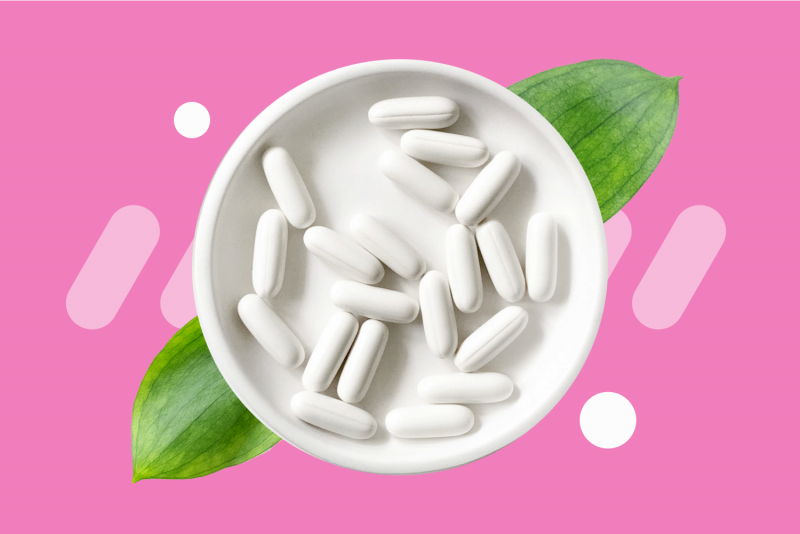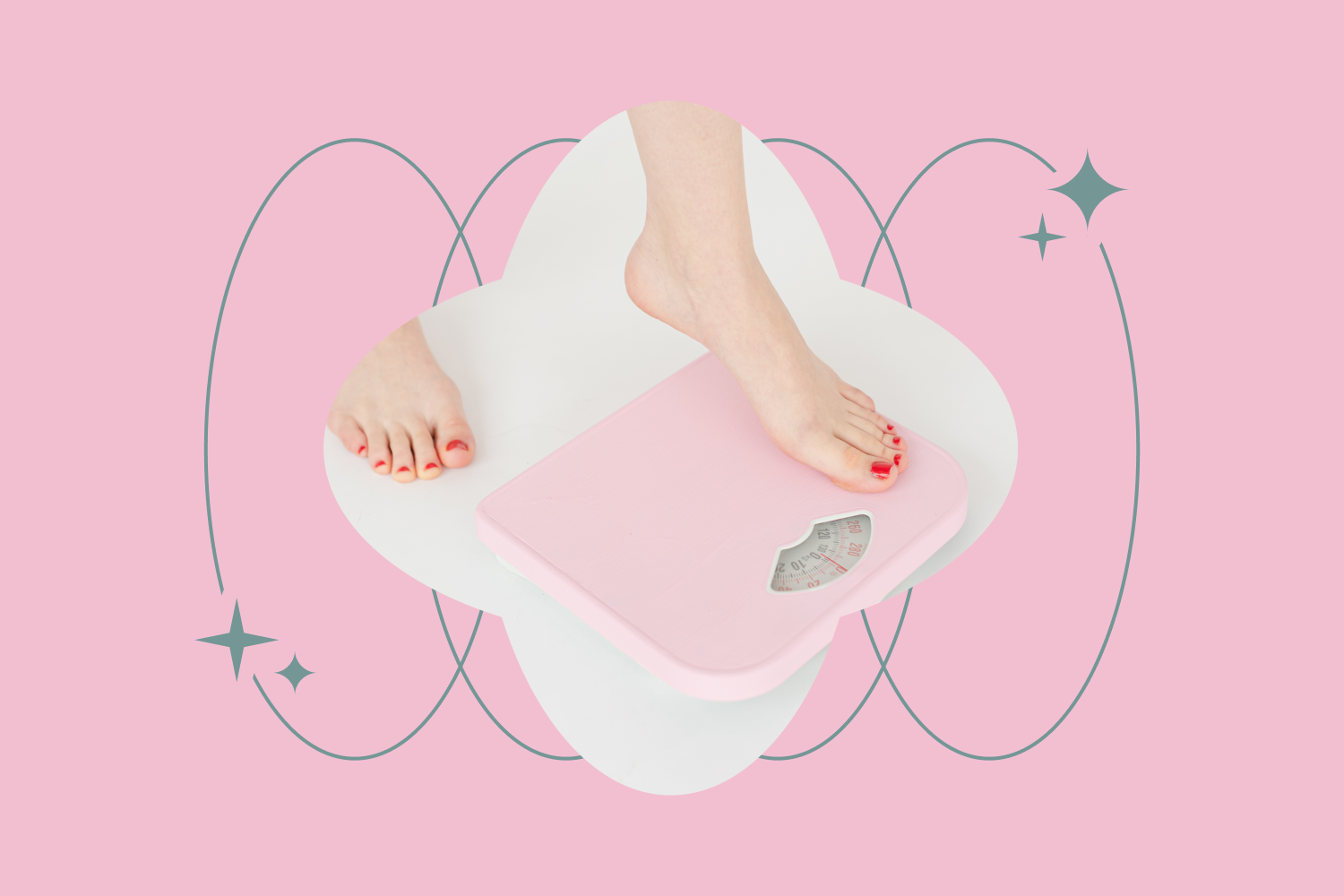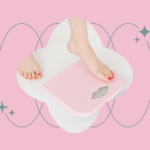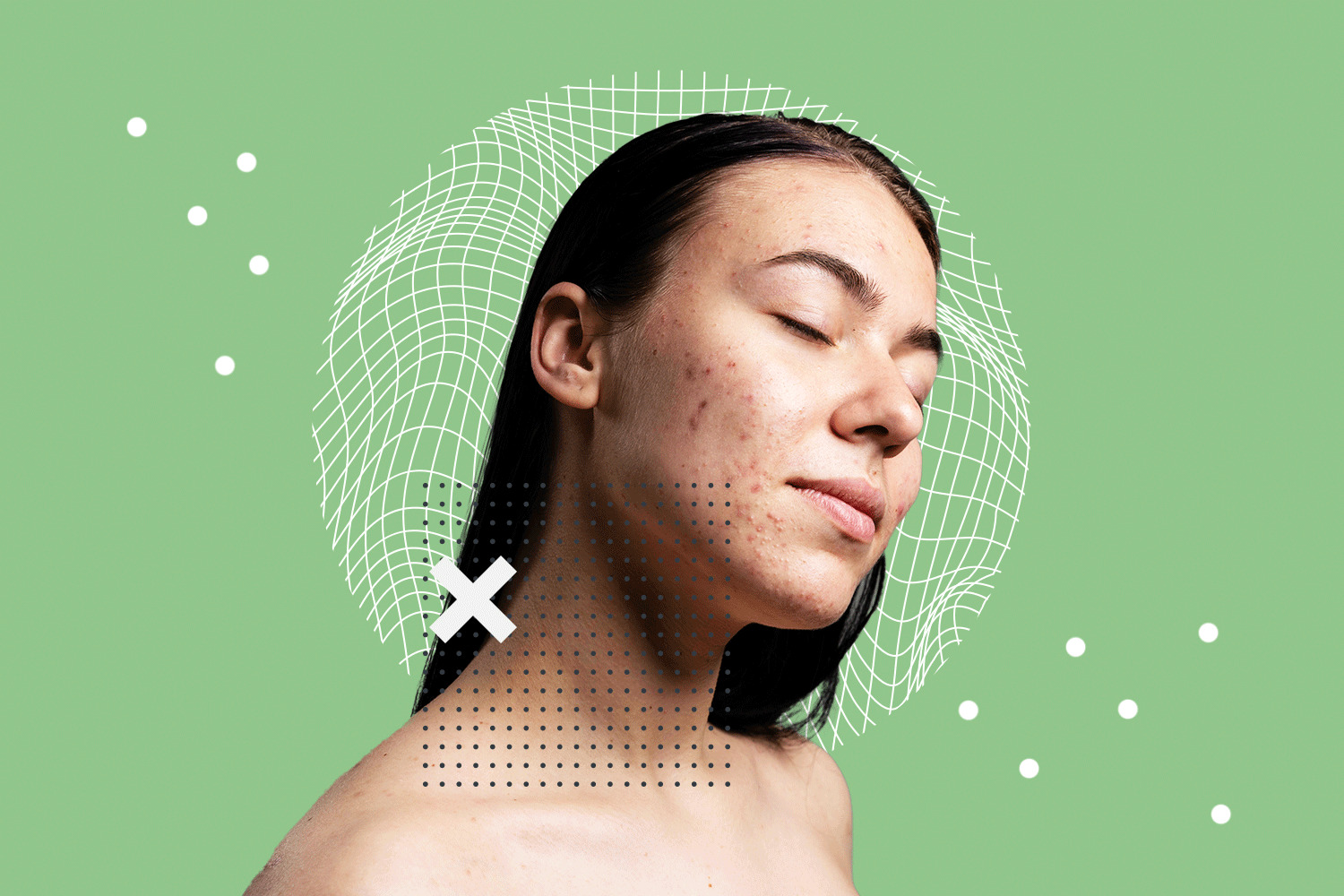PCOS Hair Loss: Causes, Treatments, and Regrowth Success Stories
Approximately one in ten women of reproductive age have experience with polycystic ovarian syndrome (PCOS). The condition is characterized by a hormonal imbalance of androgens, progesterone, and insulin, where androgen and insulin levels are typically higher than normal while progesterone levels may be lower than normal.
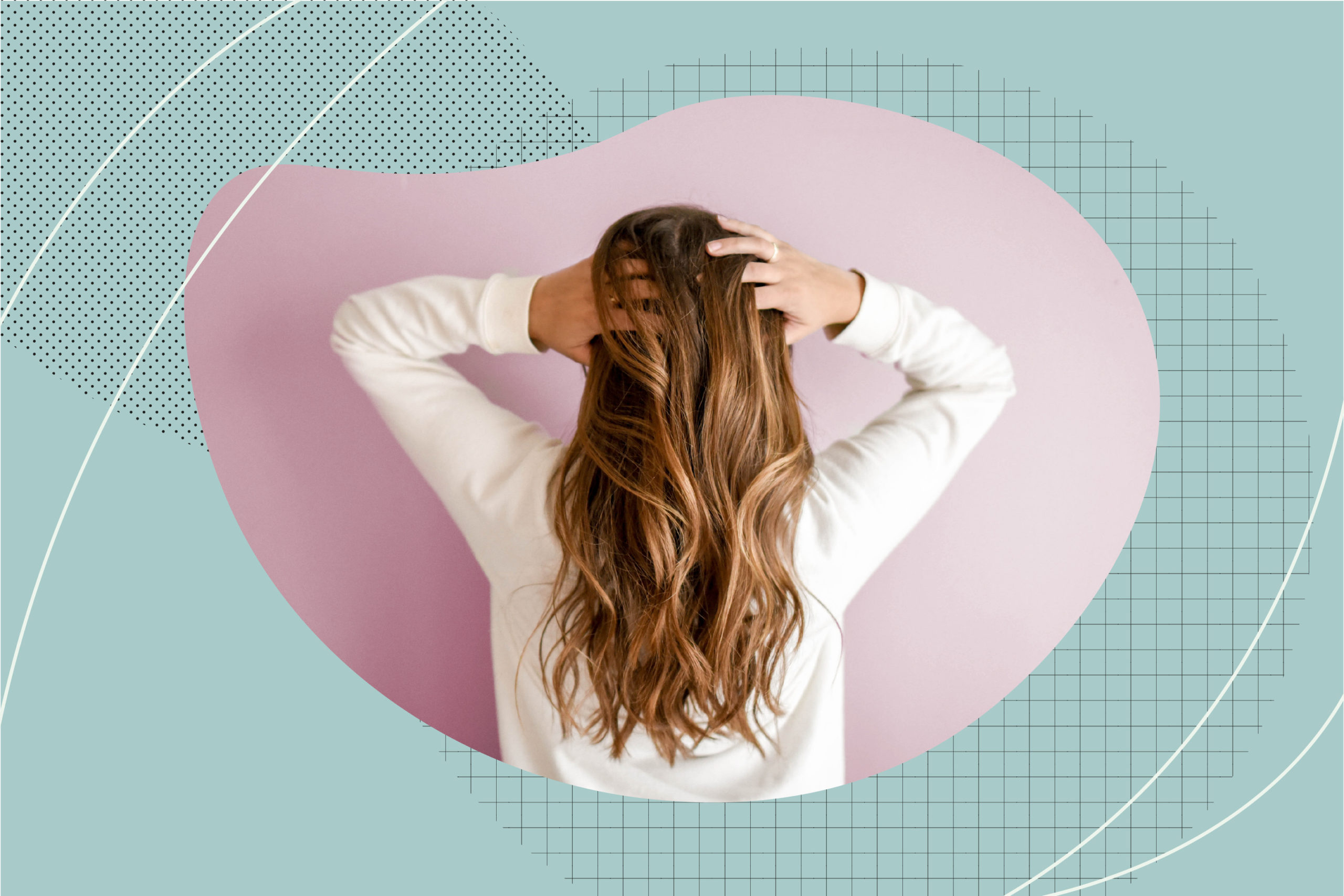
PCOS not only disrupts ovulation and the menstrual cycle, but it can also cause some frustrating side effects. This includes acne, weight gain, hirsutism (unwanted hair growth), and hair loss.
In this article, we will examine PCOS hair loss including how it develops, symptoms to watch out for, and potential treatment options for reversing it.
Does PCOS cause hair loss?
Yes. Thinning hair or hair loss is one of the most common symptoms of PCOS. Severity of this hair loss can vary, however, depending on the individual. In some cases, hair may become weaker, drier, or appear more damaged than normal. In other cases, male-pattern baldness may occur. Symptoms can span over the course of several months to several years.
Understanding PCOS hair loss
PCOS hair loss can be frustrating. However, the more you know about it, the better prepared you will be to combat it.
What causes PCOS hair loss?
Elevated androgen levels are to blame for causing hair loss in those with PCOS. Androgens are considered “male” sex hormones, and men produce them at a rate of twelve times more than women. Because women with PCOS often have higher than average levels of androgen, they are vulnerable to developing symptoms like hair loss, unwanted hair growth, and weight gain.
How does PCOS hair loss progress?
Although individual experiences of hair loss with PCOS can vary, there are noticeable patterns of how it progresses.
Initially, female pattern hair loss can feel like an overall slow thinning of the hair. It typically starts in the front of the scalp or the crown region. Next, the part in the hair may begin to thin and widen further. This is then followed by a slow receding of the hairline.
Can hair loss from PCOS be reversed?
Yes, the good news is that hair loss from PCOS can be reversed! There are treatments available that can help to balance hormones, prevent further damage, and stimulate hair growth. However, finding the solution can be a long process, and it may require some experimentation with different medical and at-home remedies.
Could anything else be causing the hair loss?
Yes. There are other potential reasons why hair loss may occur. This includes:
- Stress
- Illness or infection
- Coloring, perming, or heat-styling the hair
- Certain medications
- Vitamin deficiency
If you suspect that PCOS may be the reason behind your hair loss, speak with your doctor immediately. They can review your medical history, evaluate your symptoms, and run further tests to assess your situation.
PCOS hair loss symptoms
Again, PCOS hair loss symptoms can vary widely depending on the individual. Here are some of the most common ones to watch out for.
Shedding
It is perfectly normal and natural for hair to shed some throughout the day. However, if you begin to notice that your hair is shedding from the root more frequently or in greater quantities, this could be a sign of hair loss due to PCOS.
Here are a few scenarios to look out for:
- Does your hairbrush collect more hair than usual?
- Do you wake up in the morning with clumps of hair on your pillow?
- Have you noticed more hair coming out in the showing when you wash your hair?
- Does your hair feel thinner than normal?
Bald patches
Bald patches can also appear if you have PCOS. While they can arise anywhere on your scalp, they most commonly develop on the top or the “crown” of your head. In addition to the crown, they can also appear towards the front of the scalp.
Bald patches do not usually appear out of nowhere. Instead, they tend to follow after a period of gradual thinning and overall hair loss.
Dry and itchy scalp
Alongside shedding and balding, those with PCOS may also suffer from a dry and itchy scalp accompanied by dandruff. If you have never experienced dandruff before, here are some ways to spot it:
- Is your scalp itchier than normal? Does it look red or irritated?
- Can you see white or yellow flakes on your scalp?
- Do these flakes fall off? Do you notice them on your clothing?
Increased breakage
Those with PCOS may notice that their hair feels dry, frizzy, and weaker than usual. This dryness can cause hair to break more easily when styling, which then contributes to overall thinning and hair loss.
PCOS hair loss treatments
To combat thinning, balding, and breakage due to PCOS, there are several treatment options you can try at home and/or with guidance from a medical professional.
Home treatments for PCOS hair loss
Shampoos, conditioners, and good hair care
One of the best places to start if you are struggling with hair loss due to PCOS is by making sure that you are taking good care of your hair and scalp.
You can begin by investing in a good shampoo/conditioner combo that strengthens and protects your hair. Look for shampoos that have B vitamins and keratin, and try to stay away from shampoos with sulfates which tend to dry out the hair. You may even want to consult your hairstylist on the best products to use for your specific hair type.
To further protect your hair, it’s also a good idea to avoid using heated tools such as hair dryers, curlers, and flat irons. Chemical products like dyes, straighteners, and relaxers should also be avoided as they can be extremely damaging to hair already weakened from PCOS.
Brushes
Though it may seem like a small change, the brush you use can actually make a big difference in the health of your hair. Make sure to use a natural (not synthetic) bristle brush. The most commonly recommended is a “boar bristle brush” because it is not only soft and gentle on your hair, but it can also help to stimulate your scalp.
If you have hair loss due to PCOS, you may be worried that brushing your hair might make it fall out more. To avoid this, keep the following tips in mind:
- Brush gently
- Try not to brush too often
- Never brush your hair when it is wet
Supplements
Certain over-the-counter supplements and vitamins have also been found to help with hair regrowth. You may want to try any of the following:
- Biotin
- Keratin
- Zinc
- Iron
- Vitamin C
- Vitamin D
Bear in mind that these supplements may not be appropriate for your individual medical situation. Make sure to clear it with your doctor first before starting a new supplement.
Healthy lifestyle
Just like any other part of your body, your hair is impacted by your overall health. The following lifestyle habits can help to maximize your hair regrowth chances:
- Eating a balanced and nutrient-rich diet
- Exercising regularly (at least 150 minutes of moderate-impact exercise per week)
- Avoiding tobacco products
- Keeping stress levels low
Medical treatments for PCOS hair loss
Oral contraceptives
Oral contraceptives, or specifically combined birth control pills with estrogen and progestin, are one of the primary ways to treat PCOS. This is because they help to regulate the menstrual cycle and rebalance hormones, which is the underlying cause of PCOS in the first place.
Anti-androgens
Your doctor may also advise taking anti-androgens. Anti-androgens work by inhibiting the effect of the excess androgens in your body, which are responsible for hair loss in women with PCOS. Your doctor may even prescribe an anti-androgen together with an oral contraceptive to maximize your hair regrowth chances.
Minoxidil
Minoxidil, commonly known by the brand name Rogaine, is another possible medical treatment for hair loss due to PCOS. There is even a type of Rogaine designed specifically for women that is often recommended by dermatologists for patients with PCOS.
While a minoxidil solution like Rogaine does not address the underlying cause of hair loss, it can help with hair regrowth.
Other options to stop PCOS hair loss
Hair products and medications may take some time and experimentation in order to see results. In the meantime, you may find the following tips helpful for managing the immediate appearance of hair loss.
Styling
Good styling can make all the difference. Here are a few tips to help thinning hair due to PCOS appear thicker.
- Try a new hair part. If you usually part your hair down the middle, try parting it on the side. This may help to cover any bald patches or mask the appearance of thinning hair down the middle.
- Blow-dry hair from the root. Volumizing techniques like blow-drying your hair from the root first can help thin hair appear thicker and more voluminous.
- Try a new hairstyle. Hairstylists make magic happen with thin hair all the time. If your hair is continuing to thin due to PCOS, it might be worth speaking with your stylist about getting a new cut or style to help your hair appear fuller.
Wigs
Wigs are another option to try if you are dealing with hair loss due to PCOS. This is especially true if your dermatologist recommends giving your hair a “break” from excess products and chemicals.
If you have never worn a wig before, consider the following tips:
- Consult your stylist. After finding a wig that you like, ask your hairstylist to cut and style it so that it frames your face perfectly. This is completely normal and will help you feel more comfortable while wearing your wig.
- Don’t forget your scalp. To avoid irritation and to stimulate hair growth, make sure that you continue to wash, deep condition, and moisturize your scalp regularly. How often you wash will depend on your hair type and the severity of your hair loss.
- Take it off. If your hair is under a wig all day, make sure to give it a chance to breathe in the evenings by taking it off. This helps to prevent damage and stimulate hair growth.
PCOS hair regrowth success stories
Brandy
Brandy Pope from the YouTube channel, The Glam Belle, began to notice that her hair was falling out more than normal when she washed it. After several years of dealing with gradually thinning hair alongside other symptoms, her doctor eventually diagnosed her with PCOS.
In a testimonial video on YouTube, Brandy explained that she endured several periods where her hair loss would get better and worse – even after being prescribed PCOS medication.
However, in a follow-up video, Brandy shared that she did see improvements after using Rogaine for women and taking biotin, vitamin B12, and iron supplements. She also found that getting frequent trims was also helpful for managing her hair’s overall appearance.
Clarissa
Clarissa from the YouTube channel, Clarissa Explains It Yall, also opened up about her PCOS hair loss story. Initially, she began to notice her hair thinning around her part and the crown of her head. This was then followed by bald spots forming around her crown.
To manage this hair loss, Clarissa found a mix of products and techniques to be beneficial. She began by taking Inositol supplements, which helped to thicken her hair while also preventing unwanted hair growth in other areas. She also used The Ordinary Brand’s multi-peptide serum to help with overall hair thickness.
In terms of styling, she stressed the importance of protecting her existing hair. She did this by minimizing heat treatments and only styling once every week or two. Like Brandy, she also recommended getting a haircut every 6-8 weeks to stimulate hair growth and keep ends healthy.
Kie RaShon
Kie RaShon is another Youtuber who opened up recently about her PCOS journey. After years of struggling with dramatic hair loss and experimenting with various products, she found sulfate-free shampoo and castor oil to be the best products for helping her hair stay healthy and protected.
In an effort to avoid overwhelming her hair with too many products, she also limited shampoos to only once every two months. She found that this helped to prevent unnecessary hair loss and give her hair time to “rest”. Similar to Brandy, Kie Rashon also took biotin supplements to support hair growth.
Mira’s Editorial Process
All content produced by Mira meets stringent editorial standards, ensuring excellence and accuracy in language and medical precision. Every piece undergoes thorough fact-checking and review by qualified professionals. Check out our full editorial process to learn more.


